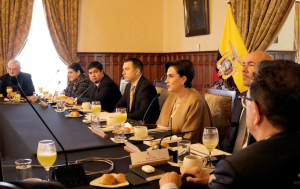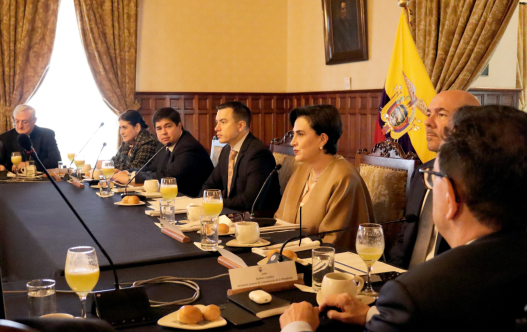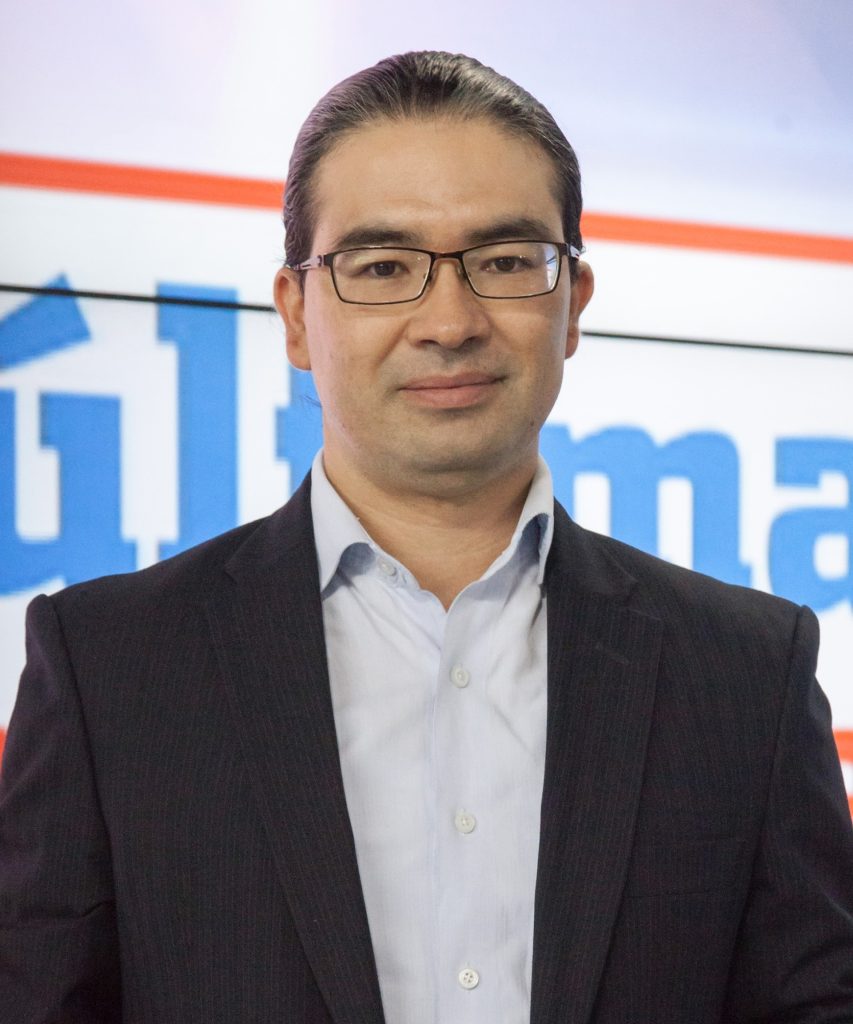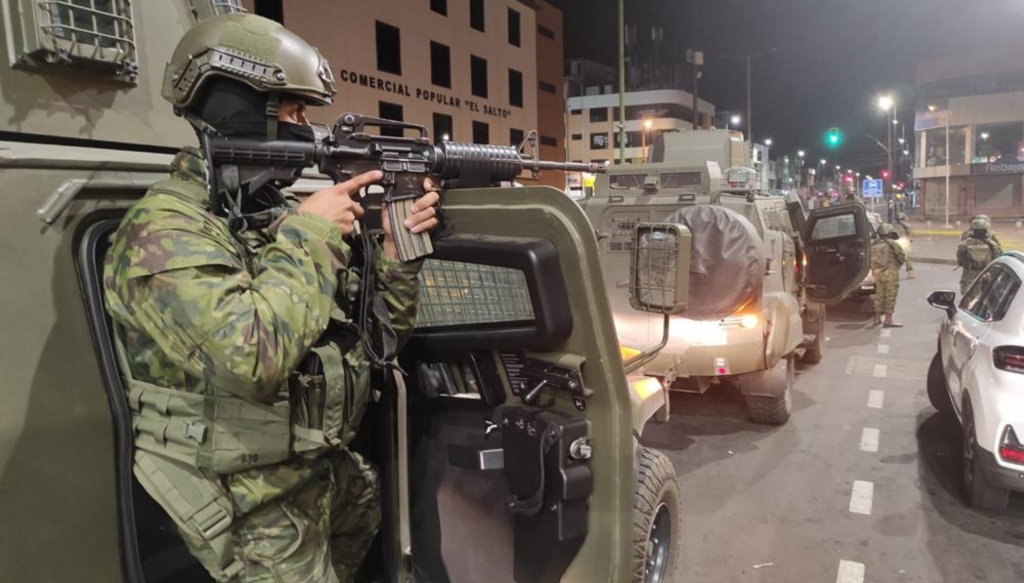
FROM SENDING SOLDIERS TO REPATRIATION OF PRISONERS OFFERED TO ECUADOR
The wave of attacks by criminal groups, which Daniel Noboa’s government has officially labeled as terrorist groups, has also unleashed a series of international demonstrations of support for the South American country.
The reaction of Latin American governments was immediate. One of the most striking was that of the Argentinean government. The Minister of Security, Patricia Bullrich, said in an interview that the Argentine Security Forces are at Ecuador’s disposal. She considered that this is a continental issue.
Peru also considered that it is an international issue. So much so that, at the same time of showing solidarity with the regime of Daniel Noboa, the government of Dina Boluarte informed that it will declare an emergency in the border zone with Ecuador, so that special forces of the Police reinforce the controls. They called for calm in towns close to Ecuador, such as Tumbes and Pira, where the Ministers of Defense and Interior were to go to coordinate actions.
In the other country with which Ecuador has a border, Colombia, there were also signs of support. President Gustavo Petro said he would be attentive to all the support requested by the government of Ecuador.
He issued that support yesterday, Tuesday, January 9, in the midst of the crisis. Today, Petro pointed out which are, according to his point of view, the causes of this situation in Ecuador and the ways of solution that should be considered.
According to the Peruvian newspaper El Comercio, Petro assured that “in America the expansion of powerful international gangs has to do with a wrong anti-drug policy (…) the more prohibition, the more profitability of illicit activities and the more deadly power of the gangs”.
Petro believes that the solution lies beyond militarization. He says that what should be done is to “provide powerful youth empowerment policies that include connectivity, culture and higher education”.
These statements were a sort of commentary on a statement by the U.S. Secretary for Western Hemisphere Affairs, Brian A. Nichols. He expressed U.S. solidarity with Ecuador and offered “assistance” to the Ecuadorian government.
That “assistance package” will arrive this week to Ecuador, according to what President Noboa said in a radio interview this Wednesday. That was agreed with the U.S. Ambassador to Ecuador, Michael Fitzpatrick.
Noboa also informed that he will receive aid from Argentina, Israel, Peru, Canada and Russia.
And he assured that he is in constant communication with the Colombian government to coordinate the deportation to that country of around 1,500 foreign prisoners with sentences of five years or more. And he will do the same with inmates from other countries.
Other Latin American governments that have shown support to Ecuador are those of Bolivia, Chile, Brazil, Mexico, Dominican Republic, Costa Rica, Venezuela and Cuba, among others.
FROM THE OTHER SIDE OF THE ATLANTIC
Josep Borrell, the European Union’s High Representative for Foreign Affairs and Security Policy, said he was “deeply concerned by the serious upsurge of violence in Ecuador orchestrated by criminal groups”.
Borrell is leading the European initiative seeking a definitive solution to the conflict between Israel and Hamas.
He considered that what is happening in Ecuador is “a direct attack on democracy and the rule of law. The EU will continue to support the people of Ecuador and its democratic institutions and stands in solidarity with the victims”.
Spain made a threefold statement. As reported by Aquí Europa, the President of the Government, Pedro Sánchez, conveyed to the Ecuadorian people that Spain is following the events with concern and expressed its support for democratic institutions and its confidence that “normality will soon be restored”. The Minister of Foreign Affairs, José Manuel Albares, expressed “his solidarity and support for democratic institutions”.
For its part, the Spanish Embassy in Quito condemned “the violent acts of the last few days committed by criminal groups”. “We support the democratic institutions of Ecuador to reestablish normality in the life of the brotherly Ecuadorian people,” it continued.
THE HISPANIC-AMERICAN COMMUNITY SUPPORTS ECUADOR
Supranational organizations also backed the Ecuadorian government and people. The Ibero-American General Secretariat “strongly condemned the acts of violence perpetrated by organized crime groups in Ecuador”. It wished for a prompt recovery of peace and public order.
And the General Secretariat of the Andean Community of Nations stated that “Ecuador must make use of all the means available to it by law to eradicate this transnational threat that threatens its democratic order”.
Understanding the international scope of criminal groups involved in terrorist attacks, CAN reaffirmed its willingness “to serve as a platform to assist in the coordination between Bolivia, Colombia, Ecuador and Peru in their fight against violence and international organized crime”.
————
This text is free to use. If you use it, please cite EditoRed.



